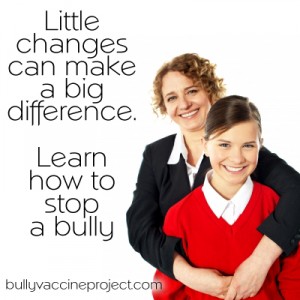Figuring out what is going on in a bullying situation isn’t easy. Our biases, can make it even harder.

Our society has a problem and that is that our cops seem to have a bias against black bodies. While there are individual cops who are good, as a group, cops are more likely to draw their weapons on a black person than a white person. This is implicit bias in action.
We have similar problems in schools. When someone is accused of bullying, our biases impact how we respond to the allegation. In fact, they impact whether we believe the allegation or not.
I have a free online course on implicit bias that will help you learn about how biases impact your thinking, and cause you to make mistakes. We all have this problem and it is our personal responsibility to work hard to make sure our biases don’t negatively impact the people we are working with. This is especially important when the people we are working with are kids in a classroom.
I wrote before about bias, stereotypes and trust. This is related to that and builds upon that post.
In bullying situations, we have someone accusing another person of behaving badly and inappropriately towards them. When we first get the report, we aren’t necessarily sure whether it actually happened or whether the children in question misread the situation. That happens a lot.
The good news is that we can start taking actions that are fair to both parties that will help eliminate unwanted behavior if it turns out that there is a child behaving inappropriately. And these things you can do are fair because you apply them to both children equally.
This isn’t about mediation. It’s about teaching kids the social skills they need to deal with difficult people effectively, compassionately and rationally. All kids need to learn these skills. And guess what? Punishment doesn’t help them learn these skills.
Approach both the kid accused and the kid making the accusation fairly. Take them both seriously. Teach them both how to deal with the situation more effectively. And then monitor them. If they take your advice great. If not, keep on them to change their behavior and increase consequences.
Adults don’t change their behavior overnight and neither do kids.
If you don’t know what it is you are supposed to be teaching them – get my book and take advantage of the resources on this page. I also have an online course on why conflict resolution doesn’t work when the problem is bullying. It is a course designed for the workplace, but it will help you understand how to take the science and apply it in situations where you aren’t sure who is doing what exactly.
The point is – if you push your biases aside and make a point to treat each child fairly and take them both seriously, you are probably going to get better results and more importantly fairer results.
Learn them, teach it and pass it on by sharing this with others.
